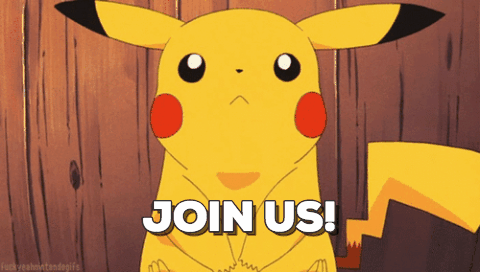Four years down the line and many lost socks later, you hope you’ve learned enough to start working at an entry-level job that will have you waking up pumped every morning. The pressure to find what makes you excited and how it can earn enough money to make a living (i.e. being able to afford three square meals in a day and not live in a matchbox) really climbs in college. The bright side? It doesn’t have to push you into the fetal position every time you think about it.
Wondering How to Find a Job? We’ve Got You Covered.
5 ways to Find something You Love to do
Some people get lucky. They find their passion in middle school and get grinding. But a lot of us wait utnil we get to a dirty dorm room with insufficient space to really figure out what we want in life. The tricky process of figuring things out doesn’t really have a right or wrong direction.
1. Never shut up

College lets you meet people from a variety of backgrounds who have so much to say and add to your experience. All this interaction might end up in meeting with a weirdo who “superliked” you or someone who makes $10,000 in the time it takes to tie a shoelace. Point is, if you try and initiate a conversation or maintain one that’s already begun, you’ll never know what benefits you might experience.
2. Join clubs

So many students discover themselves and their passions just by joining a club. “Outside of classes, I tried to get involved in more clubs and organizations to learn more about things I liked to do,” said Syracuse University alumna Ratna Khanduja. “I started out as being the Marketing/PR person for the South Asian Student Association, and then moved on to a more management type of role. I think it’s really important to get exposure outside of classes, that’s when you really get to know more about the field.”
Don’t know how to start? We’ve got you covered with this insanely helpful guide to student clubs.
3. Take general education classes

If you’re indecisive, undecided and unsure, then you probably panic during every class registration period. But most colleges require that you take prerequisites, or core courses that can push you in one direction. “What I think Whitman School does particularly well is expose us very early to a lot of different things, which is what we call our ‘core’ requirements,” Khanduja said. “So as a freshman I took one marketing course, an accounting, finance, HR etc. From there I realized what my likes and dislikes were.” An archaeology survey class to fill a lab science credit could make you into the next Indiana Jones.
4. Follow careers you see yourself in

Become the change you want to see to become the career you want. Thanks to the internet, information about careers is always at hand, be it a ballet dancer or beekeeper. With that information in hand, persuade an actual person in the career to let you shadow them at work. Send them a polite email, give them a friendly call and leave a thank-you note at the end.
5. Try your hand at various careers

Think of it like sampling everything you can at Costco. “I tried a couple approaches. My first internship was in Human Resources, I somewhat enjoyed that but thought I could do more. My second internship was in supply chain (which was one of my majors), while interning with Pepsi, I realized that supply chain was not for me,” Khanduja said. Better to find out what you don’t like before committing to it for the next 40 years. “The third summer I tried a sales & marketing internship, again…It was during this interview…that…I was put on a ‘mini project,’ where I had to shadow and work with a few consultants from PwC. That’s when I realized that consulting was where I wanted to be.”
6 Ways to Learn How to Find a Job
1. Pay your schools career center a visit

These resume wizards can tweak and polish your credentials in ways that you didn’t know existed. They also offer real-life advice and gallons of alumni networks that you can get in touch with for all your career needs. But there’s more. To find a job, you have to got to fake it till you make it, as clichéd as that sounds.
2. Network

You know how career services experts always say to network? That’s a definitely a thing, and you should’ve started yesterday. “Networking is so important,” Associate Director at Syracuse University Career Services Tracy Tillapaugh said. “75-80 percent of people get jobs by networking. That can seem daunting, but with the help of the career centers, you can connect with the people who are doing what you want to be doing. Reaching out to your extended family is very valuable.” Make your LinkedIn and Twitter feeds a regular appearance on your phones and you’re set.
3. Make yourself indispensable

One thing experts in the field keep repeating? You need to make yourself indispensable to find a job. Filling a need in a workspace is key, and filling needs your superiors didn’t even know they had takes it that one step further. So don’t be afraid to take initiative—you don’t want to be known as a kiss-up, but showcasing your inner worker bee won’t hurt.
Beyond that? A recent alumnus of the Newhouse School at Syracuse University said in a Skype session how essential being nice is. Nice people actually don’t finish last. At the end of the day, the nice ones stick out as the memorable ones. You know what else is memorable? Being a jerk, but probably not for the same reasons. Being pleasant and easy to work with is always valuable. If you’re just starting out, that might matter as much as the other talents you bring to the table.
4. Pick up the hard skills

“A lot of employers look for hard, technical skills: Knowing something in your area,” Tillapaugh said. “So if you are a PR major, it’s knowing how to write a press release, having excellent grammar. If you’re an accounting major or engineering major, it’s knowing a certain kind of software.” So make sure to pay attention in class and actually remember what you learn both in school and at your internships.
5. Pick up the soft skills

It doesn’t end there. So you’ve got a banger of a resume. But employers look for more than just that Goldman Sachs internship you did last summer. They want to know if you were the funny guy there or the one who will bring by coffee without complaints. “It’s also soft skills, personality traits,” she said. “A lot of companies want to see a culture fit as well, if the company culture is familial and friendly, they might look for someone who wants to engage, engage in conversations and get to know people.” So hone those conversational skills, dabble with some leadership and take all those group projects that didn’t leave you with all the work as proof that you can work with people. Above all, make sure to express those during the interview.
6. Rock that interview

Talking to people in interviews doesn’t have to immediately generate a cold sweat. Role play it all beforehand. Talk to your career centers about practice interviews and study up on the company’s important events and significant hires. And obviously get your friends together for a dress rehearsal, literally. As they say, with the right shoes, you might be able to conquer the world. “The important thing to know about an interview is that it it’s not a book report or a research project,” Tillapaugh said. Look at the latest news, individuals who work there, find common connections and interests so you have something to say when you ask questions.
You Have a Job—But How do You know you love it?
Do you want the job?
Recruiters can tell when you’re yanking their chain, basically. Balance your interest in the company versus the position they offer and see if you can still do a good job. If you already know this job will make your parents and your bank account happy, but if you’re miserable, drop it like a hot resignation letter.
Can you do the job?
Your confidence works on two things: Your shoes, and more importantly, your skills. Ensure that your skills and experience match up to the expectations of the position, so you don’t have to take bathroom breaks to nurse panic attacks about not knowing how to operate Excel. Giving it the ol’ college try may work in college, but the real workplace will feel like hell if you constantly struggle with the work.
Are you a good culture fit?
If you love working in teams but the company takes an individualistic approach to work, re-evaluate to see how far you can compromise and still get job satisfaction. You have to find your people.



















